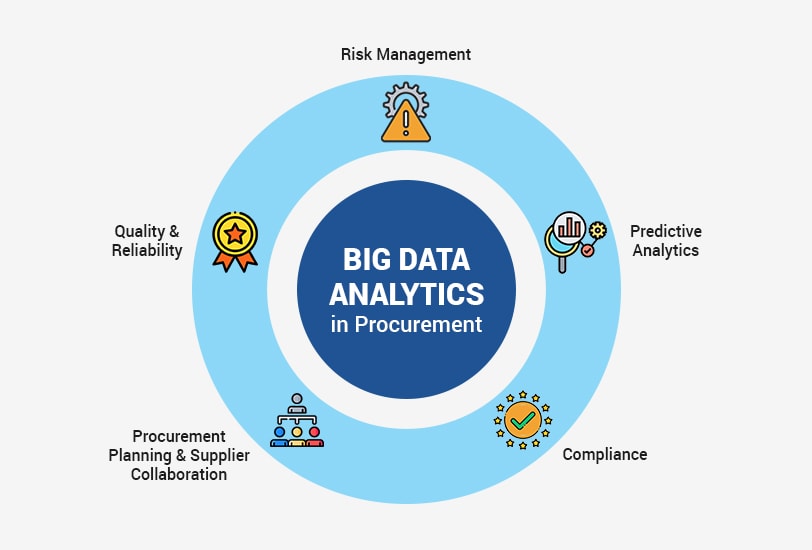Big Data Analytics Evolving Procurement Process
By Sanjay Puri, CEO, C1 India
Enterprises around the globe generate an umpteen amount of data. The raw data when filtered using advanced computing systems to derive meaningful insights is referred to as big data analytics. Today, data sources have evolved to include a far more diverse collection of both internal and external, structured and unstructured data gathered through automated processes and often executed in real-time.
Big data analytics will offer a new frontier with the aim of dramatic procurement reforms. The procurement organizations produce and store vast quantities of data spread across various systems, operations, and geographies. Procurement seems to be in a prime position to use data to derive and develop reports, meticulously monitor suppliers, perform spend analysis, and compliance checks. These insights further can be used by procurement professionals to accelerate operations, provide new business intelligence, evaluate strategies, and accomplish desired goals. Another upside of big data analytics is that it also helps in identifying correlations, various patterns, trends, and loopholes underlying within the system. Some innovative ways in which procurement functions can utilize data analytics to develop a more streamlined, efficient purchasing process:
- Extracting greater value from the sourcing process through analyzing historical data on supplier performance, market scenarios, various associated risks, and trends, etc.
- Identifying and coping with ever-changing customer demand/trends or fulfilling existing gaps within the chain. It can also be useful to improve customer service and benefits.
- Helping enterprises/customers to acquire the best quality products at the best possible price by assessing real-time comparisons between various suppliers and relating factors such as price, availability, order history, logistics costs, order to delivery fulfillment, etc.
- Setting benchmarks by collaborating internal and external data to enhance visibility.

Major areas where Big Data Analytics can help procurement process evolve
- Risk Management: With greater access to both historical and real-time data, procurement teams will be in a much better position to monitor supplier behavior. They can measure customer satisfaction levels, cash flow, lead times, and costs. It identifies business risks for suppliers, which include market-related risk, compliance risk, contract risk, geographical risk, and others. It also helps to outlay preventive measures and detect solutions to successfully deal with risk scenarios.
- Predictive Analytics: Historical data can help procurement teams to configure business rules in the analytics system, which would further set up a predictive methodology within the procurement solution and will provide results that are most likely dependent on realistic conditions. With the help of data analytics, procurement solution can forecast expenditures, based on anticipated changes in the business and pricing as per external factors. It's also probable that soon, big data analytics ability could evolve one step further and be able to make intelligence-based purchases on behalf of the company.
- Compliance: Supplier compliance is placed at the forefront of every procurement decision/strategy and it’s important that the involved parties completely adheres to established contracts. Big data analytics, however, gives procurement teams the ability to compare each transaction with the supplier contract that it is linked to. Access to real-time information will improve supplier data management. Procurement teams can undertake real-time supplier performance monitoring and take immediate action if necessary, in turn minimizing damage to the organization.
- Other areas: Performance evaluation, creating detailed and structured reports, data mining, increased process efficiency, and visibility.
Big data analytics has the potential to transform e-Procurement entirely and will elevate the standards of strategic decisions based on the derived insights. It will be an asset to every enterprise since big data analytics capabilities include predictive analytics, real-time comparisons, increased visibility, more efficient and better conclusive evaluation methodology for expenditure, supplier performance, risk management, etc. Leveraging big data analytics can raise the profile of the procurement function to become decision-makers and play a key role in developing overall business strategies.

An interesting article with great deal of useful information. Thanks for sharing.